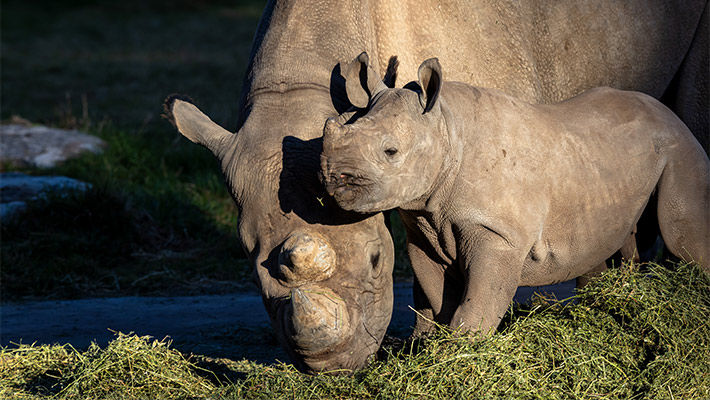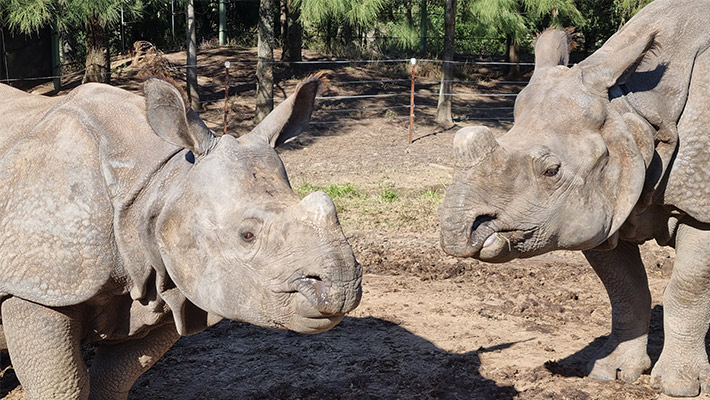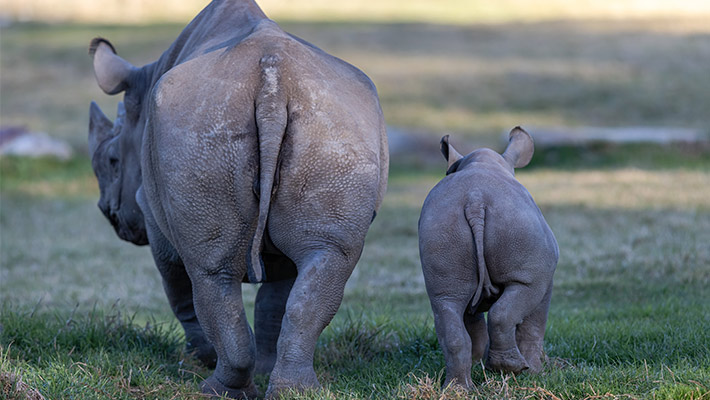Learn about Rhinos – and how you can help!
Rhino populations have dropped by an estimated 95% over the last two centuries, driven by human impact including poaching, illegal wildlife trade and habitat fragmentation.
Three of the five rhino species are critically endangered and there are predicted to be fewer than 80 Sumatran and Javan Rhinos left on the planet, which means they could be extinct in our lifetime.
The biggest threat rhinos face is poaching for their horn, which is used in some traditional medicines even though there’s no scientific proof of their efficacy (that they work!) Rhino horn is made of keratin – the same as our human hair and fingernails. The only animal with any use for these horns are the rhinos that grow them!
Taronga is a founding member of the International Rhino Foundation (IRF). Taronga actively supports conservation efforts for wild rhinos in Africa, Indonesia and India, providing funds and support with the International Rhino Foundation for anti-poaching and wildlife protection units, habitat protection and restoration, and expertise in veterinary care and reproduction to ensure all rhino species continue to survive in the wild.


